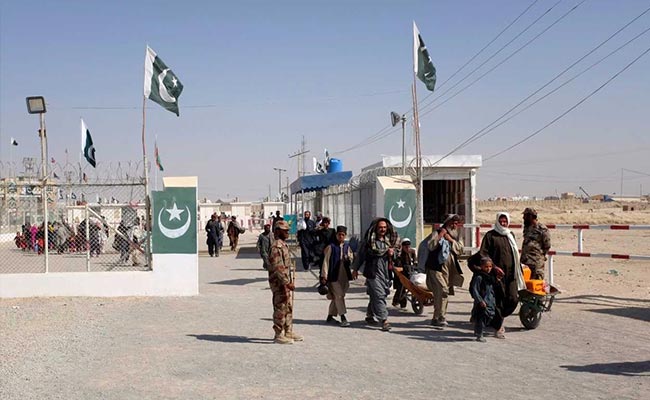A statement from the military said the overnight raid took place in the district of South Waziristan in Khyber Pakhtunkhwa province, a former tribal region that was a haven for militants from both sides of the border until 2017, when the Pakistani army declared it had cleared the region of insurgents following several operations.
The military provided no further details on the overnight raid and only said a search operation was still in progress.
Pakistanâs national security adviser Moeed Yusuf confirmed the attack, telling reporters at a press conference on Wednesday that he hoped the new Taliban government in Afghanistan would not allow any militant group, including the Pakistani Taliban â known as Tehrik-e-Taliban Pakistan or TTP â to use the Afghan soil for attacks against Pakistan or any other country.
Yusuf said militants along the border were exploiting the fluid situation in Afghanistan to target Pakistani troops. âWe made it very clear (to the Afghan Taliban) that we wonât accept any terrorism from Afghan soil,â he said.
Pakistanâs Interior Minister Sheikh Rashid Ahmed condemned the latest attack. He paid tribute to the martyred soldiers and pledged that the Pakistani military operations against terrorists would continue in South Waziristan.
Despite the militaryâs claim that the region had been cleared of militants, South Waziristan still sees sporadic attacks, mainly targeting Pakistani security forces. Pakistan has blamed the countryâs outlawed Tehrik-e-Taliban Pakistan for most of the attacks.
Pakistan and Afghanistan share a 2,400-kilometer (1,500-mile) long border that is internationally recognized and known as the Durand Line. It was drawn in the 19th century, when the British dominated South Asia. Afghanistan has never recognized the boundary.
Before the Taliban took power in Afghanistan in a blitz campaign that overrun most of the country in less than a week and seized the Afghan capital, Kabul, on Aug. 15, the two neighboring countries regularly traded accusations, blaming the other of turning a blind eye to militants operating along the porous frontier.
Since the Taliban takeover in Afghanistan, there have been mounting concerns that this would embolden the Pakistani Taliban to stage more attacks and threaten the government in Islamabad.
A few years ago, Islamabad started building a fence along the border, insisting it seeks to prevent cross-border attacks. The authorities say the fence is 90% complete.
.png)











 English (United States) ·
English (United States) ·  Turkish (Turkey) ·
Turkish (Turkey) ·